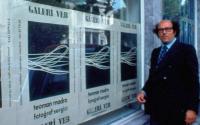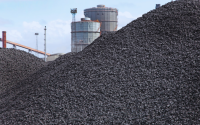13 October 2006Maureen Freely
Last year - not long after Orhan Pamuk was tried for insulting Turkishness - an Istanbul newspaper ran an article entitled 'Who is Maureen Freely?' Their answer was that I was more than just Orhan's friend and translator - I was a shadowy master agent whose sole purpose in life was to win my client a Nobel Prize.
It was part of a much larger hate campaign in the rightwing press - just one lie amongst thousands. The campaign was so vicious that I was sure that - even if it wanted to honour Turkey's foremost writer - the Nobel Academy, which shies away from controversy and does not wish to take instruction from shadowy master agents, would want to wash its hands of the whole thing.
So - though I've often used the N word when writing about Pamuk's work - I was probably the most surprised person in the world this morning. I was just finishing a fiction seminar at the University of Warwick when he rang me with the news that he had been awarded the Nobel Prize for literature, and I'm afraid I screamed. He was calm and courteous, as I too tried to be on a series of radio programmes afterwards. But I am somewhat troubled that almost every interview began with the same question. Did I see this prize as political?
No, I don't. Orhan Pamuk has been on the world stage for 15 years now. He is a hugely innovative literary writer whose books owe as much to the great 19th century novelists as they do to the modernist traditions to which he also belongs. His subject is the clash of civilisations, or rather, the strange and subtle interweavings of contradictory cultures in Turkey past and present. In his historical novels - The White Castle and My Name is Red - he presents dark metaphors that illuminate the contradictions of contemporary life. In his contemporary novels, he pierces the silences enforced by state ideology to expose the truth about power and its masters. But like all important writers in Turkey, he has often been asked - and felt obliged - to speak on matters of political principle. He has spoken most consistently and eloquently on free expression.
For many years, his high profile in the west allowed him more freedom than most. That ended in February 2005 when he remarked in passing to a Swiss journalist that though a million Armenians had been killed in the country of his birth, no one talked about it. The firestorm in the Turkish press was so fierce that he briefly left the country. And then there was the lawsuit, which seemed to come at such an awkward time for Turkey. Here it was, trying to join the EU. But here it was, prosecuting yet another writer for his words. It wasn't doing itself any favours, was it? The story has moved on since then - as many as 80 writers, scholars, artists, and activists have been prosecuted for insulting state, the judiciary, or Turkishness itself; there are 45 more cases set to go to trial before the end of the year.
The ultranationalist lawyers who brought the case against Pamuk hope to trample democratic debate. Here they have not (yet) succeeded. The intelligentsia is putting up a good fight. But it's come at a cost, especially for those who are known in the west, and most especially for Orhan. His life story eclipsed the stories in his books.
My hope is that this will change now. The Nobel has gone not to the man and not to his politics but to his words, his characters, and his ideas. Born into a culture that had (recently) clipped its eastern roots, and that was struggling to define itself as western, he has (like all of us who grew up in Istanbul) grappled with double identities all his life. What might have seemed a curse to a young man is the source from which his imagination feeds. He has taken both sides of his clashing heritage and made them whole. Though he is often praised in the west for making Turkey "visible", his greater achievement is to make the west see what it looks like from the outside. This is why he has such devoted readerships on both sides of the divide.
Now that he has won the prize of prizes, will he be allowed to shed his political persona and go back to his desk? It's too early to tell. He is still a controversial figure in Turkey. He will, no doubt, continue to challenge its official history when he thinks it right to do so, just as he will continue to challenge Islamophobia and ultranationalism in the west. But now, at last, his books will come first. Who knows, the day may come when he is honoured even in the country he's put back on the map.
http://books.guardian.co.uk/comment/story/0,,1921246,00.html






